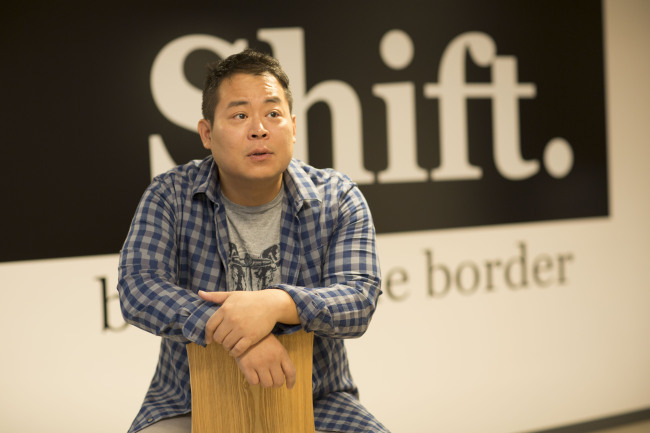Startups
[INTERVIEW] Shift, dedicated to linking Korean startups with Southeast Asia
[THE INVESTOR] It would be an understatement to say “Southeast Asia” is a buzzword in Korea’s startup scene, as accelerators, venture capitalists and startups alike are keen to enter this huge block of emerging markets.
Shift is one Korean accelerator that also changed gears when its founder Ryu Cheong-yeon turned to Asia after experiencing frustration in places like Silicon Valley and China. This was when he was at Born2Global Centre, a government-backed agency under the Ministry of Science, ICT and Future Planning, to help attract investment for Korean startups, and their global expansion.
 |
Southeast Asia-foused aelerator Shift founder Ryu Cheong-yeon (Shift) |
“It does depend on how you define ‘going global,’ but I became frustrated within a year or two after setting up endless meetings with investors,” Ryu said during a recent interview with The Investor. “At that time, there seemed no place for Korean startups around the world. Korean startups were not savvy enough for Silicon Valley, while China seemed to be a whole different world with totally different rules, not to mention communication barriers.”
Then in late 2014, he made a trip to Southeast Asia that changed everything.
“The market is big, their population is huge and they are quickly becoming big consumers,” said the CEO. “In particular, their mobile infrastructure is developing rapidly.”
To focus on Southeast Asia in earnest, Ryu founded Shift in December 2015. Seed-level investment came from Bon Angels, a leading early-stage VC led by Chang Byung-gyu, the founder of Bluehole Studio.
Ryu hopes to encompass the entire region one day, but for now, Shift is focused on Indonesia, because despite what the world’s fourth populous country has to offer, it’s still quite unfamiliar for Korean startups. “Koreans are familiar with Vietnam, due to wide business connections. As for Singapore, startups are already using it as their Southeast Asian base. But Indonesia, despite its attractions, is still kind of unknown,” Ryu said.
Shift has so far invested a total of 1.4 billion won (US$1.3 million) in four startups that include IP content providers and cross-border logistics firms. Ryu said Shift plans to invest more vigorously once it establishes its own VC fund in the first half of this year.
“Just because you’re successful in Korea doesn’t mean you can replicate it in Southeast Asia. I’ve seen some of the businesses failing miserably,” Ryu said. “So we hope to provide the right kind of resources to help startups find their fit.”
Ryu says while a growing number of VCs and startups are paying more attention to Southeast Asia, the main audience is still government-backed institutions. “I think VCs and startups are still a bit unfamiliar with Southeast Asia,” he added.
As part of efforts to highlight the region and its potential for Korean startups and investors, Shift hosted Asia Beat, a two-day conference focusing on Southeast Asian markets and startups. The purpose of the annual event is to build networks and provide real opportunities for both startups and investors who are interested in Southeast Asia.
The first event bore some fruit, with some matchmaking occurring between investors and startups, according to Ryu.
In the long run, Shift hopes to expand its scope to include countries such as Myanmar and Bangladesh that are still left on the margins of the startup boom, and also help more overseas startups build their network in Korea as well.
By Park Ga-young and Ahn Sung-mi (gypark@heraldcorp.com) (sahn@heraldcorp.com)








